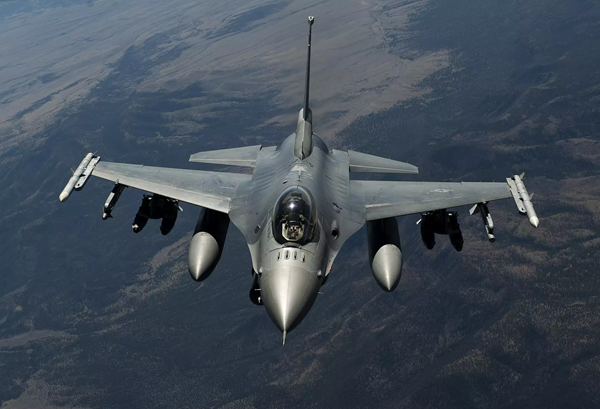Belgium postpones F-16 delivery to Ukraine amid shortage of parts and pilots
Belgium's Defence Minister Ludivine Dedonder revealed on December 18th that the delivery of the first batch of F-16 fighters to Ukraine has been postponed. The delay is attributed to a shortage of parts and an insufficient number of qualified pilots.
According to Le Soir, Belgium has also experienced delays in acquiring new American F-35 fighters, which were ordered back in 2018 to replace the older F-16s. Although the first batch was expected in 2023, delivery schedules have slipped to 2024. In July, Belgium received four F-35s, but these remain in the U.S. for pilot training. Belgium's Prime Minister Alexander De Croo anticipates the aircraft will reach Belgium in 2025.
Back in 2023, Belgium, along with the Netherlands, Denmark, and Norway, launched an "airplane coalition" to supply F-16s to Ukraine. Belgium initially focused on personnel training and logistical support, but later pledged to [deliver 30 of these fighter jets to Kyiv by 2028. This year, Ukraine was expected to receive two to four F-16 jets.
The coalition aims to send Ukraine a total of 79 fighters. However, Ukraine's President Volodymyr Zelensky indicated the Ukrainian Air Force needs between 120 and 130 aircraft to effectively counter Russian aircraft. The Netherlands has already approved the use of its transferred F-16s for striking Russian targets, while Belgium has restricted their use strictly to Ukrainian territory.
In early August, Ukraine received its first batch of F-16s, although the specifics are undisclosed. Reports from The Times indicated the Netherlands handed over six fighters, followed by Denmark's delivery of an additional six F-16s. Denmark sent a second batch in December. Volodymyr Zelensky shared the first images of F-16s in Ukraine this August. Later that month, there was a reported crash involving an F-16.
In October, UK Deputy Defense Minister Luke Pollard announced the nation had trained 200 Ukrainian pilots to fly the F-16. The U.S., joining the training initiative, has opted to start educating younger pilots this fall. Unlike their experienced counterparts, these recruits will require a year-long training regimen, conducted in the UK and France.
